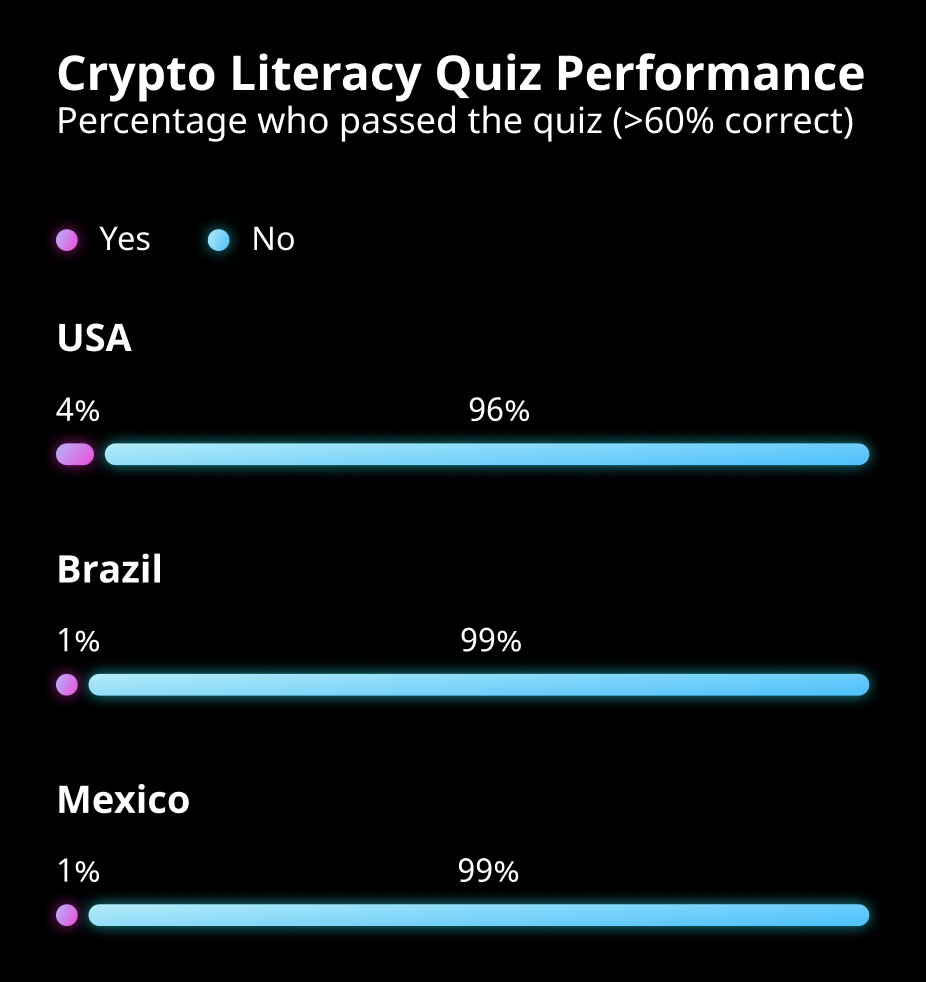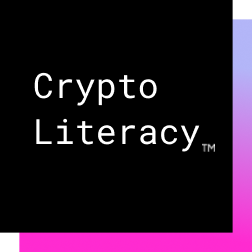Welcoming crypto literacy
The global adoption of cryptocurrency systems represents a massive shift in the way we do things.
At the macro-level, cryptocurrencies and decentralized technologies will change the way we organize, communicate, and structure ourselves. At a micro-level, cryptocurrency technologies will enable equitable access and personal freedom in ways that legacy systems can’t (or won’t) accommodate.
But before we can achieve the grand vision of a world without gatekeepers or intermediaries, and where handling financial matters is as easy as sending an email, we first need to get the entire world up to speed on what crypto is and why crypto is important.
The reason that crypto literacy needs to happen along with crypto mass adoption is that the risk of a rapid rise of a new tech, without users totally understanding its utility, could lead to a missed opportunity.

Without crypto literacy, we collectively run this risk of power consolidation in the hands of the few. And new innovation — or in this case new kinds of crypto products and services — will only come about after market demand. But new markets won’t sprout up unless people realize the full potential and power of crypto.
Why now?
OK, so we all get that crypto literacy is an important part of a healthy and sustainable adoption cycle. But why is this focus on crypto literacy happening now?
The primary reason is that bitcoin and cryptocurrency systems have hit a mainstreet moment.
After years of building and innovating, cryptocurrencies have become big enough that they are impactful — both in terms of tech stack and in terms of total value locked (TVL) inside the protocols. The total market cap, for example, of all cryptocurrencies, is quickly approaching $3 trillion.
So cryptocurrencies are big enough now to have an impact on other global markets and other financial infrastructure, which is a kind of tipping point.
But how well understood are these crypto-enable changes? That’s exactly why the 2021 Crypto Literacy Survey was created. The goal of the survey was to gauge general understanding and to see how well-distributed crypto literacy is globally.
The survey consists of 17 questions, assessing knowledge in cryptocurrency, bitcoin, De-Fi, blockchain, mining, types of wallets, NFTs and general sentiment towards digital currencies. The survey was pulsed by YouGov to a population of 1,000 cryptocurrency or bitcoin-aware internet users in each country, balanced across age, gender, and education level (and race/ethnicity in the U.S.).
